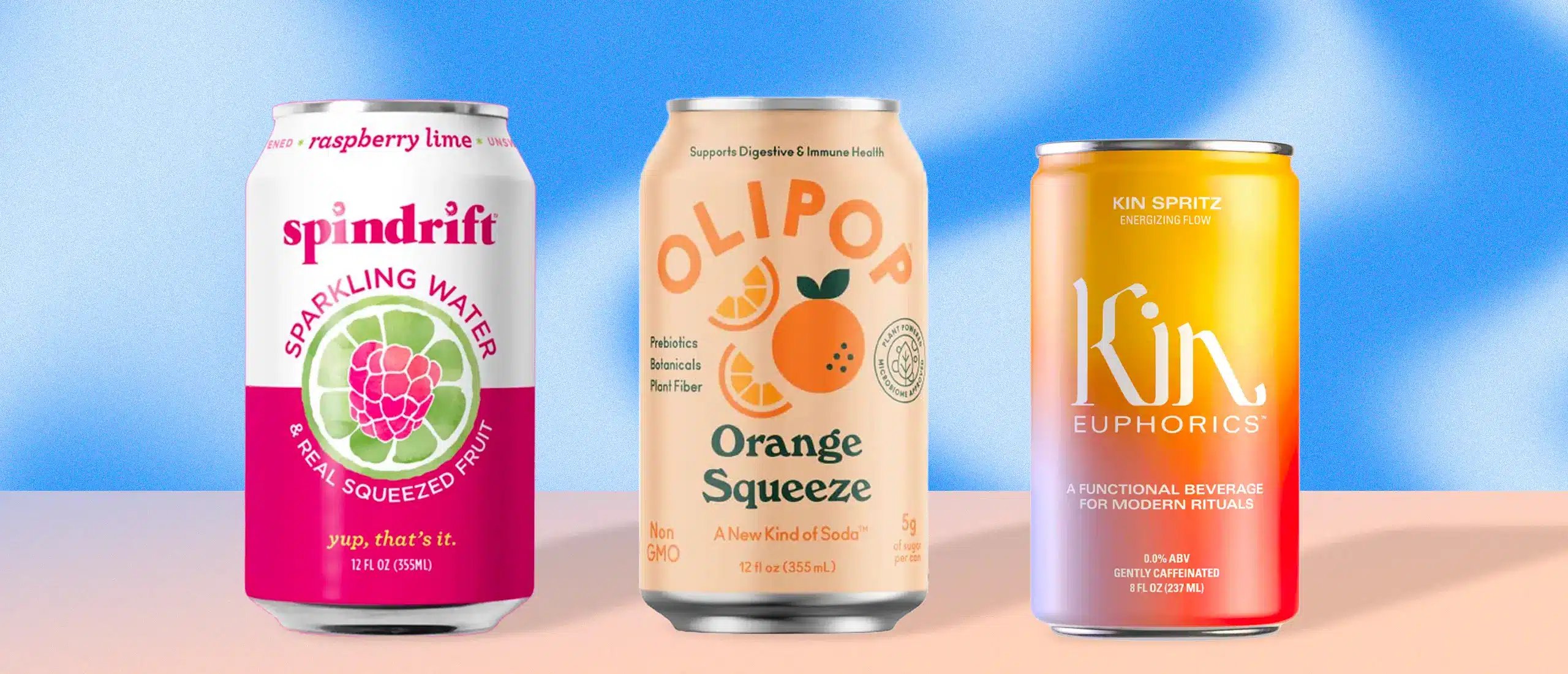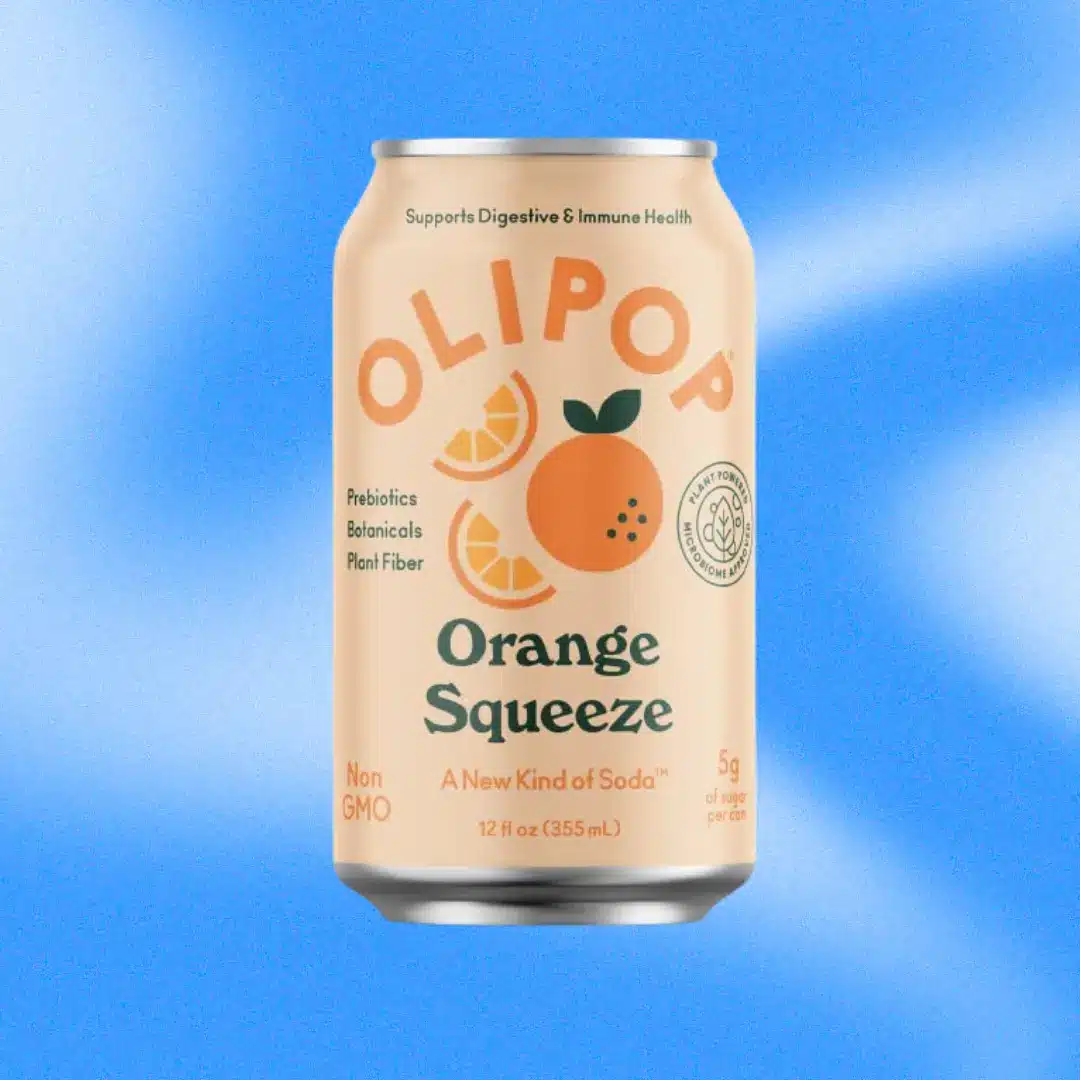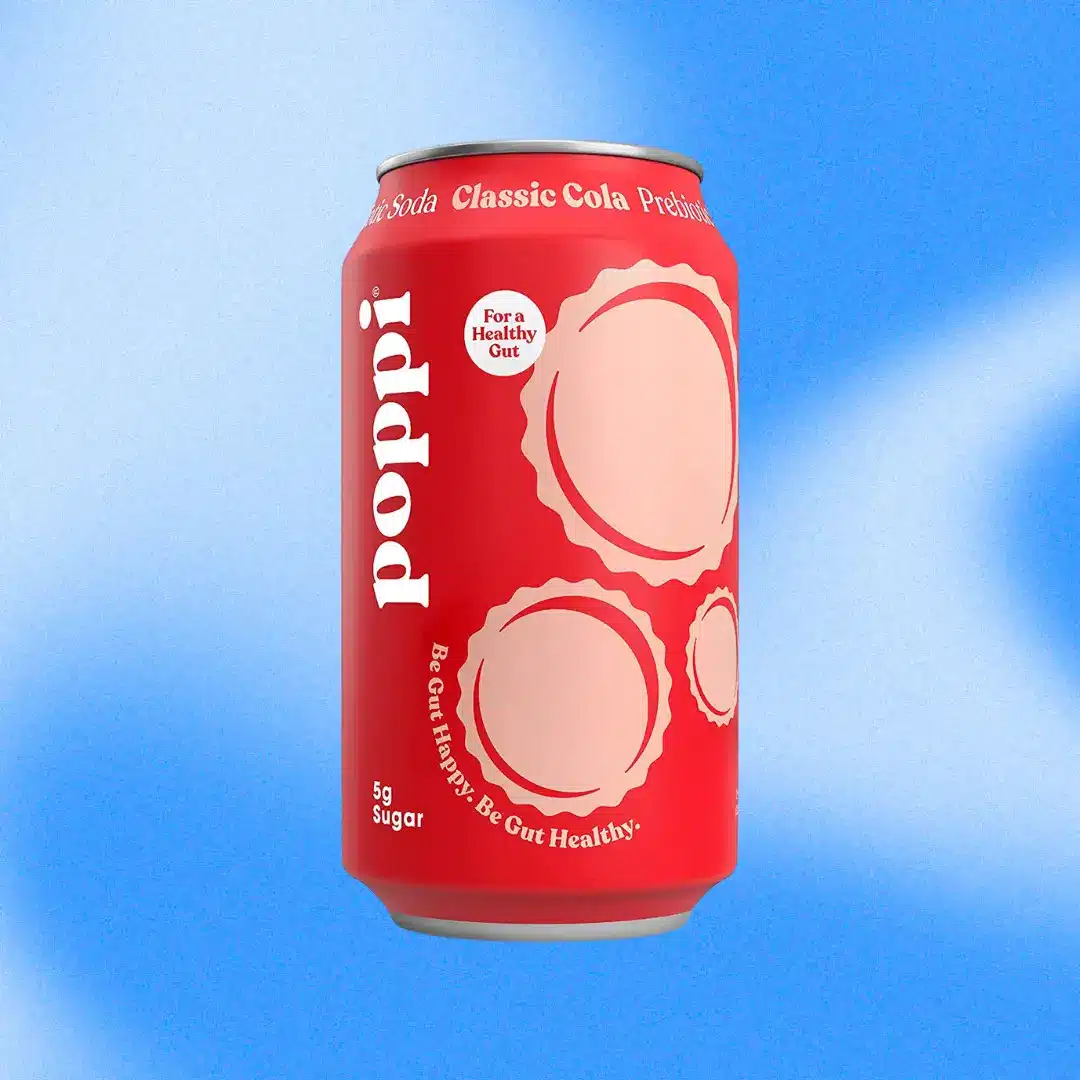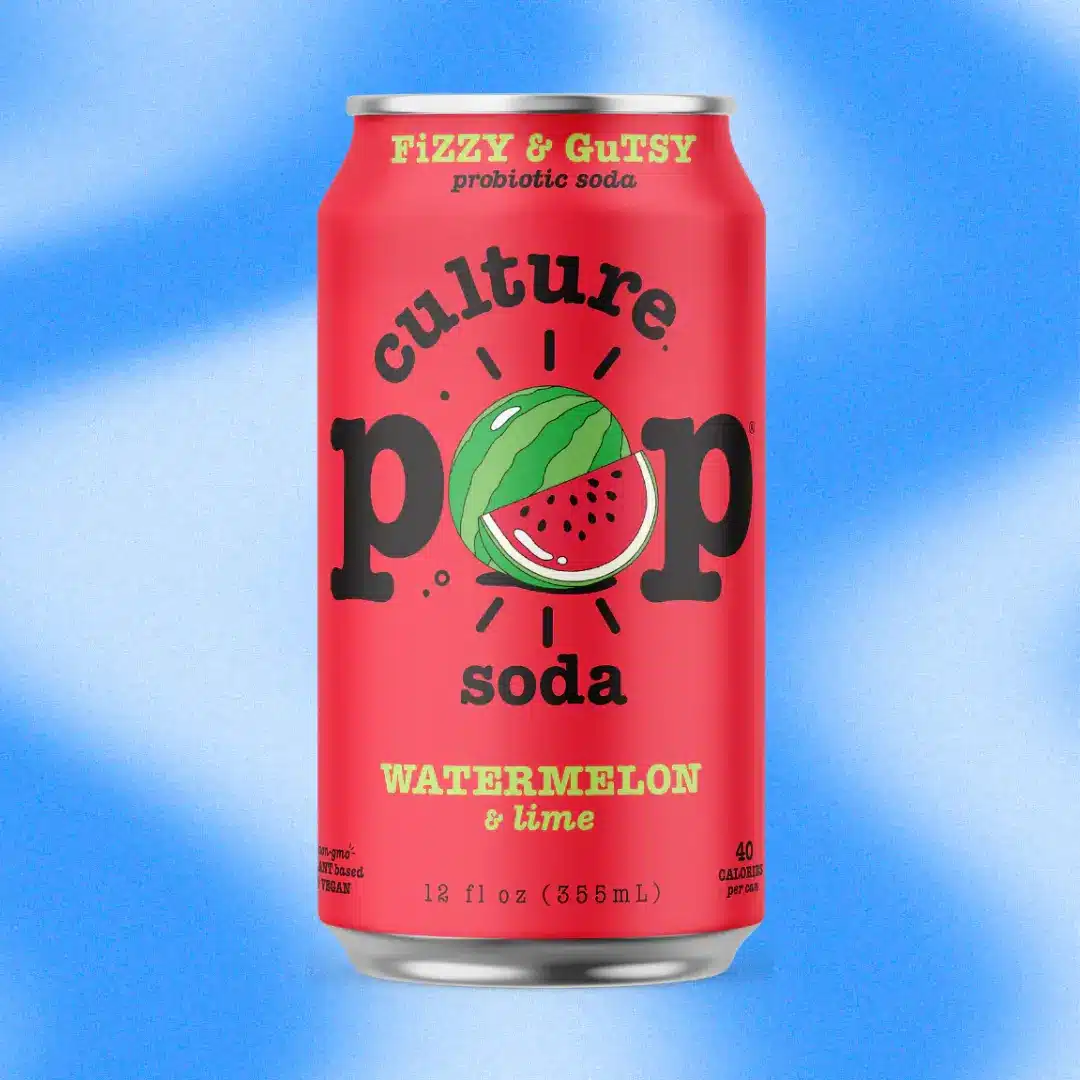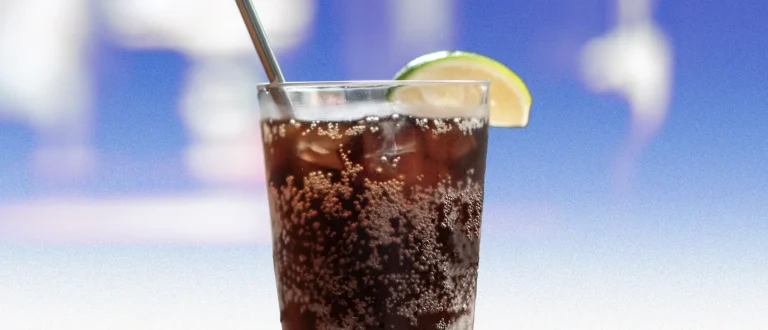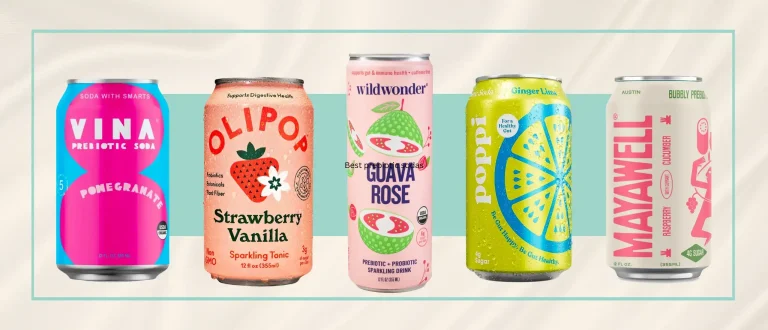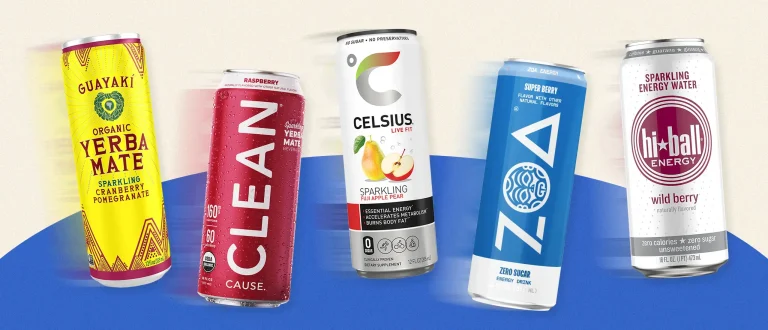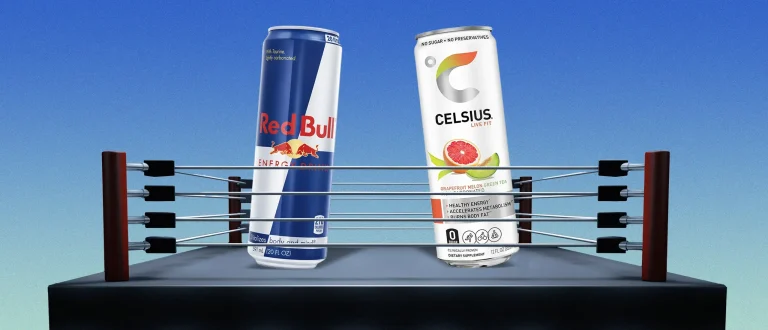Our product recommendations are selected by editors, tested first-hand, or expert-approved. We may earn a commission through links on our site.
It’s no secret that drinking soda is terrible for your health. But in favor of the occasional syrupy, sweet sip, most of us prefer to ignore the details of just how bad it actually is.
Soda intake is linked with weight gain regardless of activity levels (so, no, you won’t burn it off later) (1). It’s also associated with a host of chronic diseases from cancer to nonalcoholic fatty liver disease (2, 3). The final straw: Drinking soda may shorten your lifespan (4).
That’s exactly why soda gets a hard pass from us. Still, we crave the nostalgic flavors we grew up sipping. Or at least something that still feels like a treat without all the calories and added sugar.
That’s where healthy soda comes in. New, flavorful, and fizzy, the healthiest soda brands feature less sugar and cleaner ingredients, with all the classic flavors you know and love. Plus, the probiotics, adaptogens, and antioxidants found in these buzzy drinks might boost your health.
The 10 Healthiest Sodas
Ready to make the switch? Here are the healthiest sodas that don’t sacrifice flavor with impressive health benefits to boot.
Pre- and Probiotic Sodas
Soda with prebiotics and probiotics are a bubbly spin on traditional soda, made with ingredients to support a healthier gut. These fizzy concoctions deliver classic sweet flavors (think cola and orange cream) with a dose of pre and probiotics. Plus, they cut out the sugary junk found in a traditional can of Coke.
Olipop
If you’re looking for a healthier soda that delivers nostalgic flavors like Banana Cream, Vintage Cola, and Cherry Vanilla, Olipop scratches the itch. In the place of sugar, Olipop boasts prebiotics, plant fiber, and botanicals—which pull double duty, lending flavor and boosting gut health. Each flavor leans on a blend of chicory root, Jerusalem artichoke, nopal cactus, kudzu root, and calendula to feed the healthy bacteria in your microbiome. Pro tip: Go for the Orange Squeeze; it’s as satisfying as an orange creamsicle on a hot summer day.
Per can: 35 to 45 calories, 2 to 5 g of sugar (2 to 5 g added sugar)
Sweetener: Stevia
Poppi
Vinegar can help curb hunger, regulate blood sugar, and reduce inflammation (13, 14, 15). But no need to fight down a shot of apple cider vinegar (ACV) every morning—drink a can of Poppi instead. Poppi is a better-for-you soda loaded with pure, unfiltered ACV from fermented apples. If you’re thinking you’d rather not drink vinegar at all (we get it, we tried TikTok’s healthy coke and it tastes nothing like actual Coke), Poppi softens ACV’s bite with cane sugar, stevia, fruit juice, and sparkling water. That makes each can of Poppi way lower in sugar and calories than Coke, but their Cola, Root Beer, and Doc Pop flavors taste so good they might have you fooled.
Per can: 15 to 25 calories, 4 to 5g of sugar (4g added sugar)
Sweetener: Fruit juice, cane sugar, and stevia
Culture Pop
Probiotics are the healthy bacteria that live in your gut. Getting your daily dose of probiotics can boost weight loss efforts, digestive health, immune function, and more (16, 17). You could add a probiotic to your supplement stack or sip on a Culture Pop probiotic soda. Each can contains live probiotics, making this soda functional, not just delicious. Each fruit-forward flavor has a grown-up twist like Orange Mango Chili and Lime, Wild Berries and Lime, and Pink Grapefruit Ginger and Juniper.
Per can: 40 to 45 calories, 8g sugar (0g added sugar)
Sweetener: Organic fruit juice, herbs, and spices
Humm Probiotic Soda
If you’re a kombucha lover, you’ve likely heard of Humm—the kombucha brand is one of the most popular options on the market. And while the OG kombucha flavors are a hit (mango passionfruit, we see you), they’re packed with sugar. Nothing Humm isn’t aware of. The brand’s new probiotic sodas and seltzers contain zero calories and sugar—thanks to the natural sweetener allulose—and are loaded with two billion probiotic cultures in every can. Try the Berry Cream or Lemon Lime sodas to get your sweet fix, or the Peach and Raspberry Lime seltzers for something lightly sweet and fizzy.
Per can: 0 calories, 0 g of sugar (0g added sugar)
Sweetener: Allulose syrup
Healthy Seltzers and Sparkling Waters
When you just *need* something bubbly to sip on but want to steer clear of added sugar, look to these healthier seltzers and sparkling waters. These options provide more flavor than your average can of LaCroix, making them soda adjacent with the lighter ingredient profile you know and love of a typical sparkling beverage.
New Wave Soda
One of the obvious perks of drinking soda is the caffeine, of course. New Wave Soda has that covered. Each can contains 85 percent sparkling water, 15 percent fruit juice, and 42mg of natural caffeine from coffee beans (about half the caffeine in your average cup of coffee). It passes the sweet test, too—with a fruity flavor and only two to six grams of sugar per can. If you’re after a replacement for your coveted Dr. Pepper, New Wave isn’t it. However, its wide range of fruity flavors with a fizzy punch is the perfect summer mocktail mixer.
Per can: 15 to 25 calories, 2 to 6 g sugar (0g added sugar)
Sweetener: Fruit juice
Casamara
What should you sip on when you want to drink socially, don’t want the calories, but don’t want plain old soda water and lime? Meet Casamara. Lighter than your average soft drink, but complex enough to compete with alcoholic beverages, Casamara appropriately refers to its seltzers as “leisure sodas.” If you like the flavor of amaro, an Italian bitter drink, Casmara uses a non-alcoholic version of amaro to flavor each of its four Italian-inspired flavors—from wild lemon to grapefruit spritz.
Per can: 15 calories, 4 g sugar
Sweetener: Demerara cane sugar and orange blossom honey
Spindrift
When you need a simple, clean sparkling drink without all the fluff, Spindrift is the go-to. While many soda and seltzer brands depend on a wide array of artificial flavors or sweeteners for flavor, Spindrift contains just two ingredients: carbonated water and real squeezed fruit. The result is a slightly fruity and sour flavor that feels fancier than your average sparkling water. Whether you reach for Raspberry Lime or Half Tea Half Lemon, you really can’t go wrong. Even better, you can find them literally anywhere from Walmart to Target.
Per can: 3 to 20 calories, 0 to 3 g sugar (0g added sugar)
Sweetener: Fruit juice
Ruby Hibiscus
Think of Ruby as a more functional Spindrift. Ruby sticks to the water and juice concept with the added bonus of antioxidant-rich hibiscus. Emerging research suggests the hibiscus flower is packed with antioxidants (like beta-carotene and vitamin C), can fight inflammation, and may reduce the formation of fat cells (18, 19). For those looking to kick a sugar habit, Ruby’s naturally tart and slightly sweet flavor profile can help serve as a stand-in. Personally, we’re fans of the Fuji Apple, which is reminiscent of a sparkling Martinelli’s, with way less sugar.
Per can: 3 to 45 calories, 0 to 10 g sugar (0g added sugar)
Sweetener: Fruit juice
Adaptogen Sodas
These canned adaptogen sodas offer chill vibes without the sugar high (or real high), making them the perfect swap for a post-work glass of wine, afternoon coffee, or a can of root beer at the lake.
Kin Spritz
Kin Spritz is a sparkling drink that works overtime. Its ingredients are intended to rouse your mind and boost energy levels. It’s crafted with fresh citrus, warm spice, hibiscus, ginger, and caffeine plus adaptogens like rhodiola rosea and nootropics like GABA, which work in tandem to get you through your morning or afternoon slump. Each can tastes healthy thanks to the lack of sugar (only 3 grams of added sugars) and ingredients like ginger and bitter orange extract.
Per can: 35 to 60 calories, 2 to 5 g of sugar
Sweetener: Fruit juice and agave
Recess
You’ve likely heard of Recess’ infamous CBD-seltzers. And while we’re forever fans of the calming effects of CBD, we’re even more excited about the brand’s new Recess Mood bevs. Each flavor is made with magnesium and adaptogens like L-theanine and lemonbalm to calm the mind and lift the mood.
Per can: 20 calories, 4 g sugar or less (0g added sugar)
Sweetener: Fruit juice and/or monk fruit
How Bad Is Soda For Your Health?
Aside from the fact that soda is loaded with chemicals and can be alarmingly high in calories, the biggest problem is the amount of added sugar it contains. Odds are good that a 20-ounce bottle of your favorite soda (check the chart below) contains more sugar than a pint of Ben & Jerry’s ice cream. The American Heart Association recommends men consume no more than 36 grams of sugar per day, but a 20-ounce Coca-Cola contains a whopping 65 grams of sugar in one hit (5).
Sugar stokes inflammation, which is linked to everything from erectile dysfunction to heart disease (6). Added sugar—especially from sugar-sweetened beverages like soda—is a major contributor to obesity (7). High sugar intake has been linked to anxiety and depression (8). Plus, excessive amounts of sugar can increase cellular aging, making you functionally older (9).
That said, sugar isn’t inherently bad. It depends on the format it’s consumed. Soda just so happens to be the worst possible way to indulge, according to longevity doctor Peter Attia, M.D. “If there is one type of food that I would eliminate from everyone’s diet if I could, it would be fructose-sweetened beverages, including both sodas and fruit juices, which deliver too much fructose, too quickly, to a gut and liver that prefer to process fructose slowly,” Attia wrote in Outlive. “Just eat fruit and let nature provide the right amount of fiber and water.”
Which Soda Is the Worst For You?
All of them. Just kidding, but none of them are great. The nutrition facts per 20 fluid ounces of the worst popular sodas, below.
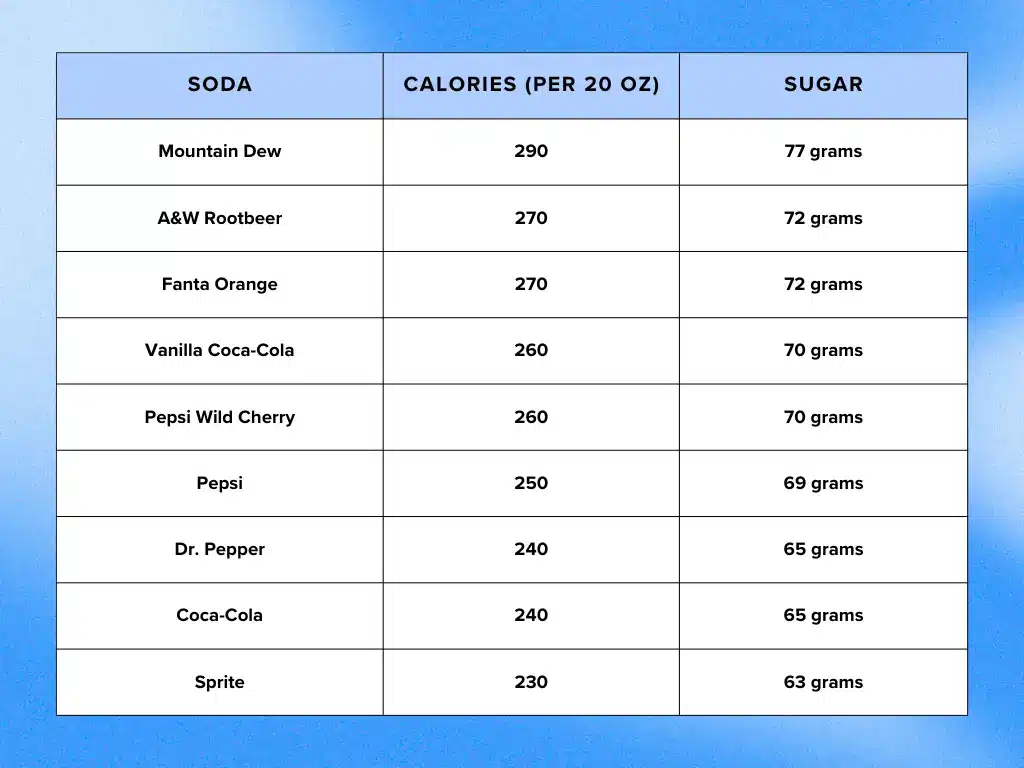
CLEAN ENERGY
Is Diet Soda Healthy?
Not exactly. The perk of diet soda is that it has no added sugar or calories. But diet soda makes up for it with controversial artificial sweeteners, chemicals, and other additives.
Artificial sweeteners are FDA-approved and considered safe for human consumption in small amounts (10). However, artificial sweeteners have been linked to changes in the gut microbiome and glucose homeostasis, decreased satiety, and increased caloric consumption and weight gain (11). The World Health Organization released a statement in May 2023 recommending against the use of artificial sweeteners to control body weight or reduce the risk of chronic disease (12).
Is Healthy Soda Good For You?
It depends. Healthy sodas vary in ingredient profile and sugar content and some are healthier than others. Generally speaking, healthier soda options cut back on sugar and steer clear of artificial sweeteners. Instead, they depend on carbonated water, fruit juices, and plant-based ingredients to deliver flavor and function.
Just because healthy soda is better for you than a can of Mountain Dew doesn’t mean you should be guzzling the stuff, though. There are around two to ten grams of sugar per serving in the most popular options—which means drinking one can isn’t a huge concern, but multiple cans can drive up your daily sugar intake. Like all good things, healthy soda is a treat best enjoyed in moderation.
- Soft Drink Intake is Associated With Right Gain Regardless of Physical Activity Levels: The Health Workers Cohort Study.
- Consumption of Sweet Beverages and Cancer Risk. A Systematic Review and Meta-Analysis of Observational Studies.
- Soft Drink Consumption and Risk of Nonalcoholic Fatty Liver Disease: Results From the Tianjin Chronic Low-Grade Systemic Inflammation and Health (TCLSIH) Cohort Study.
- Association Between Soft Drink Consumption and Mortality in 10 European Countries.
- How Much Sugar Is Too Much?
- Excessive Intake of Sugar: An Accomplice of Inflammation.
- The Dose Makes the Poison: Sugar and Obesity in the United States—A Review.
- The Impact of Sugar and Consumption on Stress Driven, Emotional, and Addictive Behaviors.
- Impact of Nutrition on Telomere Health: Systematic Review of Observational Cohort Studies and Randomized Clinical Trials.
- How Sweet It Is: All About Sugar Substitutes.
- The Association Between Artificial Sweeteners and Obesity.
- Use of Non-Sugar Sweeteners: WHO Guideline.
- Vinegar Consumption Can Attenuate Postprandial Glucose and Insulin Responses; A Systemic Review and Meta-Analysis of Clinical Trials.
- Beneficial Effects of Apple Cider Vinegar on Weight Management, Visceral Adiposity Index, and Lipid Profile in Overweight or Obese Subjects Receiving Restricted Calorie Diet: A Randomized Clinical Trial.
- The Effect of Apple Cider Vinegar on Lipid Profiles and Glycemic Parameters: A Systematic Review and Meta-Analysis of Randomized Clinical Trials.
- Probiotics, Prebiotics, and Synbiotics for Weight Loss and Metabolic Syndrome in the Microbiome Era.
- Health Promoting Activities of Probiotics.
- Mechanisms of Action of Nutritionally Rich Hibiscus Sabdariffa’s Therapeutic Uses in Major Common Chronic Diseases: A Literature Review.
- Impact of Phenolic Extracts and Potassium Hydroxycitrate of Hibiscus Sabdariffa on Adipogenesis: A Cellular Study

